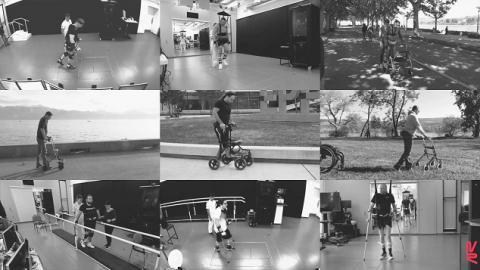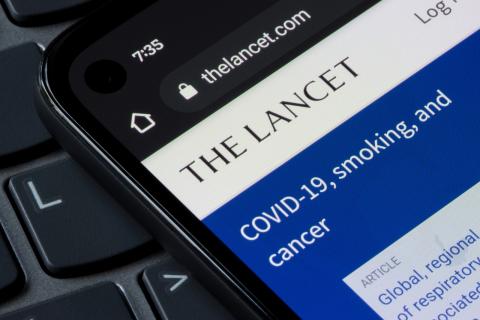Reaction: A temperature-sensitive prosthesis enhances the dexterity of amputated individuals
A team of researchers has developed a device that would allow individuals with amputations to perceive and respond to temperature by providing thermal information from the tip of the prosthetic finger to the amputee's stump. The device, called "MiniTouch," featured in the journal Med, can be integrated into commercially available prosthetic limbs and does not require surgery. The authors demonstrate that, thanks to the thermosensitive prosthetic hand, a 57-year-old male with below-elbow amputation was able to distinguish and manually classify objects of different temperatures and perceive bodily contact with other humans.

Pictured is the 57-year-old man with the heat-sensitive prosthetic hand whose case is explained in the research. Credit: © 2024 EPFL/Caillet.
Juan de los Reyes Aguilar - prótesis
Juan de los Reyes Aguilar
Head of the Experimental Neurophysiology Group at the Research Unit of the Hospital Nacional de Parapléjicos, member of the Castilla-La Mancha Health Service (SESCAM), the Castilla-La Mancha Health Research Institute (IDISCAM) and the Spanish Society of Neuroscience (SENC)
The work describes a successful case report in the application of a neurotechnology device to recover temperature sensation through a prosthesis in individuals with upper limb amputation. The device and the foundations of its neurotechnology were developed by the same research group in 2023 (Iberirte et al Science). In that previous work, it was described that it was successful in 17 out of 27 individuals, indicating possible limitations in its application that may depend on the type of amputation.
The current work is a demonstration of the precision achievable through the application of neurotechnology to inform the brain about the temperature of objects manipulated by the person through a prosthesis attached to the amputated limb. With this advancement, it becomes possible for the use of a prosthesis in individuals with upper limb amputation to not only enable controlled movement of the limb but also to inform the brain about the sensory characteristics of the objects manipulated through the prosthesis, whether they are cold, warm, or have no temperature contrast (neutral). The result is an improvement in movement and manipulation precision, but above all, it completes the set of sensations lost when experiencing an amputation, such as touch, proprioception, and temperature sensation.
This scientific and therapeutic advancement is part of the main line of work of the research group, which has previously developed neurotechnologies that have allowed the restoration of touch and proprioception sensations in individuals with amputation. From the perspective of fundamental physiology, balancing the massive loss of the set of sensory inputs resulting from an amputation aids in greater movement precision. Additionally, it is worth noting that the objective underlying this advancement is the correct processing of the different sensory modalities (touch, proprioception, and temperature) lost due to amputation. To achieve this, in future steps, different devices that allow the reception of sensory information regarding touch, proprioception, and temperature will be integrated into a single prosthesis. The restoration of these sensory inputs will enable joint processing at the cerebral level similar to what occurs in a natural situation, avoiding the possible development of pathologies associated with amputation.
The most obvious limitation of the work is described in the previous 2023 study, namely, that the device was only efficient in 50% of the amputated individuals who tested it. This is due to the difficulty of finding, in the amputated limb, the representation of phantom sensation in the nerve pathways through which sensory information is conducted from the skin and organs to the brain. Not all individuals experience the same amputation, and not all preserve certain pathways necessary to locate and implant the device. Nevertheless, a large portion of affected individuals will be able to benefit from this advancement.
Jonathan Muheim et al.
- Research article
- Case study
- People



